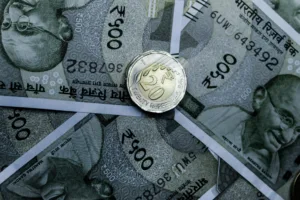
The Supreme Court issues a landmark judgment, validating the abrogation of Article 370 and confirming the complete applicability of the Indian Constitution to Jammu and Kashmir. Additionally, the court upholds the transformation of Ladakh into a Union Territory.
The Supreme Court has instructed the Election Commission of India to organize elections in Jammu & Kashmir by September 2024.
The Chief Justice of India has delivered significant conclusions:
• Jammu and Kashmir lacks sovereignty post the Instrument of Accession.
• No internal sovereignty for Jammu and Kashmir.
• Challenge to Presidential Rule proclamation deemed invalid.
• Presidential power must align with the objective of rule.
• Parliament’s lawmaking power for the state cannot be excluded.
• Article 370 was temporary.
• Dissolution of Constituent Assembly removed only transitory power.
• Amendment of Article 370 through CO 272, Para 2 deemed ultra vires.
• President’s power use not malicious; no state concurrence needed.
• CO 272, Para 2 application of Indian Constitution to J&K validated.
• Continuous presidential power exercise signifies ongoing integration.
• Jammu and Kashmir Constitution declared redundant.
• Presidential power use affirmed as not malicious.
• Decision to carve out UT of Ladakh upheld; Statehood restoration promised for J&K; Elections directed under Reorganisation Act. (Election by September 2024)
Justice SK Kaul emphasized that Article 370 was initially a temporary provision designed to derecognize internal sovereignty, aiming to bring the state of Jammu and Kashmir in line with other states in India, facilitating gradual integration. He argued that the constitutionality in Article 370(3), requiring concurrence with the state, should not render the broader purpose of the article redundant. Justice Kaul criticized the use of the amendment of Article 367 as a backdoor approach, highlighting that the cessation of the constituent assembly only meant the end of its recommendatory powers. Additionally, he noted that Article 356 could be imposed without barring the union or president from exercising non-legislative functions on the state legislature. Justice Kaul expressed difficulty in ascertaining the views of the state legislature due to the absence of a session and concluded with a poignant acknowledgment of the challenges faced by the people of the state, calling for healing in the aftermath of insurgencies and intergenerational trauma.
Justice Khanna contributed by stating that while amending Article 367 (CO 272) was legally flawed, the same objective could be achieved through Article 370(3), validating the constitutionality of CO 273.
Bringing you the latest updates on finance, economies, stocks, bonds, and more. Stay informed with timely insights.





One Comment